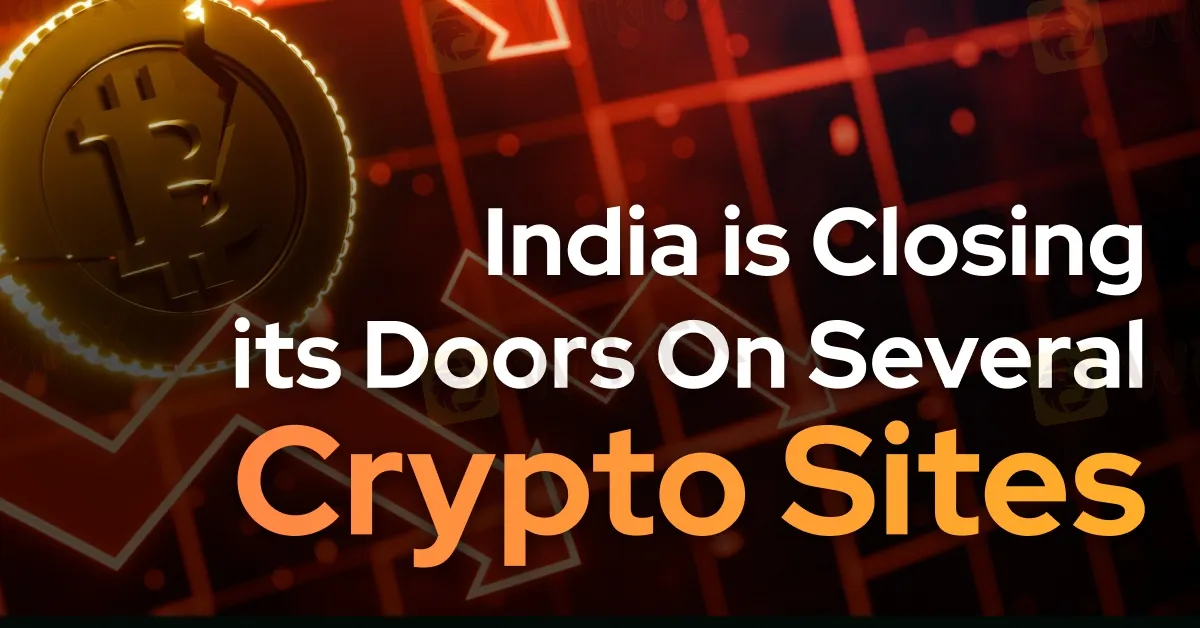简体中文
繁體中文
English
Pусский
日本語
ภาษาไทย
Tiếng Việt
Bahasa Indonesia
Español
हिन्दी
Filippiiniläinen
Français
Deutsch
Português
Türkçe
한국어
العربية
India is Closing its Doors on Several Crypto Sites
Abstract:India's crackdown on unregistered crypto exchanges: understanding the implications of the recent FIU mandate against global giants like Binance, Kucoin, and Bitfinex.

India's recent crackdown on offshore virtual digital asset service providers has sparked attention, with the government issuing show cause notices to nine prominent exchanges for breaching local anti-money laundering regulations. The Financial Intelligence Unit (FIU) mandated the blacklisting of these exchanges' domains due to their unauthorized operations within the country.
The notice specifically named Binance, Kucoin, Huobi, Kraken, Gate.io, Bittrex, Bitstamp, MEXC Global, and Bitfinex—exchanges globally renowned for their substantial crypto trading volumes but lacking any authorization to function in India.

Expressing the gravity of the situation, the notice highlighted the Director of FIU IND's correspondence with the Ministry of Electronics and Information Technology, urging the blockage of these entities' URLs for operating in blatant disregard of India's Prevention of Money Laundering Act.
While India permits cryptocurrency exchanges to operate, stringent restrictions, particularly under anti-money laundering laws, have been imposed. Local exchanges are mandated to levy source tax on traders for each transaction, with a fixed 30 percent tax on crypto gains, devoid of any offsets against losses in alternative asset classes.
Emphasizing the expansive reach of these regulations, the notice underscored that compliance obligations aren't conditional upon physical presence within India. The regulations place significant responsibilities—reporting, record-keeping, and more—on Virtual Digital Asset Service Providers (VDA SPs) under the PML Act, including mandatory registration with the FIU IND.
Despite 31 registered crypto exchanges in India, the FIU's scrutiny revealed the pervasive presence of unregistered offshore exchanges, serving a substantial user base within the country. These entities operate without adhering to regulatory standards, causing concerns over compliance and security within the Indian crypto landscape.

Disclaimer:
The views in this article only represent the author's personal views, and do not constitute investment advice on this platform. This platform does not guarantee the accuracy, completeness and timeliness of the information in the article, and will not be liable for any loss caused by the use of or reliance on the information in the article.
Read more

Japan’s Shift in Crypto Policy and What It Means for Investors
Japan’s ruling Liberal Democratic Party (LDP) is moving forward with regulatory changes to update how cryptocurrency is taxed and classified. The proposed reforms aim to lower the capital gains tax on digital assets to 20% and officially recognise cryptocurrencies as a separate asset class within financial regulations.

Donald Trump’s Pro-Crypto Push Boosts PH Markets
Donald Trump’s pro-crypto stance lifts PH markets with a strategic reserve of Bitcoin, Ether, XRP, Solana, and Cardano, driving a 10% surge in crypto value.

Is Pi Network the Next Big Crypto Opportunity?
Pi Network’s price is up 190%. Could it be the next big crypto investment? Explore its growth potential, ETF prospects, exchange listings, and risks.

Is $CORONA Memecoin a Legit Crypto Investment?
Explore if "$CORONA" memecoin is legit as Italy’s CONSOB bans its offer and blocks 11 crypto sites under MiCAR, targeting unauthorized services.
WikiFX Broker
Latest News
Is $CORONA Memecoin a Legit Crypto Investment?
Is Pi Network the Next Big Crypto Opportunity?
Is Linkbex a Scam? SFC Warns of Virtual Asset Fraud in Hong Kong
Donald Trump’s Pro-Crypto Push Boosts PH Markets
5 Best Copy Trading Brokers: You Can Trust in 2025
3 EXCLUSIVE Ramadan Offers That Won’t Last Long! ACT NOW
The Next Crypto Giants: 5 Altcoins to Watch
Japan’s Shift in Crypto Policy and What It Means for Investors
Forex Trading: Scam or Real Opportunity?
The Hidden Tactics Brokers Use to Block Your Withdrawals
Currency Calculator






